“Chinese Compatriots Help Each Other” Series (1) | Han Xianglin: “It would be against our conscience if we go away!”
During the Nanjing Massacre, more than 20 Europeans and Americans including John Rabe remained in Nanjing, which had been plunged into darkness, and played a tremendous role in protecting and rescuing refugees by means of their special status as nationals of neutral countries. At the same time, over 1,500 Chinese staff risked their lives to participate in refugee relief on a voluntary basis, performing much tedious work. They are also heroes.
On February 21, 1938, John Rabe, chairman of the International Committee, spoke highly of the Chinese who fought alongside Westerners in his farewell speech: “If we say we foreigners have achieved some success, it is in large measure attributed to our Chinese friends who have faithfully and kindly helped us. The work of the departments of our Committee has actually been done by the Chinese. We must frankly admit that they worked under greater risk than we did...”
From today, the Memorial Hall’s Media Center will launch special reports on “Chinese Compatriots Help Each Other”, presenting the stories of Chinese staff who endured humiliation and helped the refugees at the time. The first episode today is: “Han Xianglin: “It would be against our conscience if we go away!”
Han Xianglin, who was proficient in English, German and French, was John Rabe’s Chinese secretary. When Nanjing was in the grip of crisis 86 years ago, he resolutely chose to stay despite John Rabe’s persuading. He later became director of the Siemens refugee shelter and director of the Food Committee of the International Safety Zone. He assisted Rabe in protecting many refugees. A few days ago, Ling Xi, deputy director of our museum, led a team to Shanghai to visit Han Yunhui, Han Xianglin’s daughter, and learn about her father’s deeds.
He was favored by John Rabe for his outstanding language competence
We met Han Yunhui, who is now gray-haired, in an apartment in Pudong New Area, Shanghai. She was the youngest daughter of Han Xianglin, who acted as a secretary for John Rabe, the chairman of the Nanjing Safety Zone International Committee at the time. She was born in 1940 at Nanjing Drum Tower Hospital and lived with her parents and brothers in the Rabe Mansion at No. 1 Xiaofanqiao, Guangzhou Road, Nanjing, until she was 6 years old. Han Yunhui recalled her memories of her father and her life in Nanjing when she was a child.
“My father was born in 1906 in a rural village in Linzi County, Shandong Province. He had two older sisters, a younger sister, and four younger brothers, including a younger brother who had died young. My grandfather led a poor life as a farmer, but my father and three aunts studied hard at schools.” According to Han Yunhui, her father studied in the economics department of Qilu University, and dropped out of university due to financial difficulties and other reasons after the second year. At the age of 22, he married Zou Cuizhen, who graduated from the home economics department of a university in Shandong.
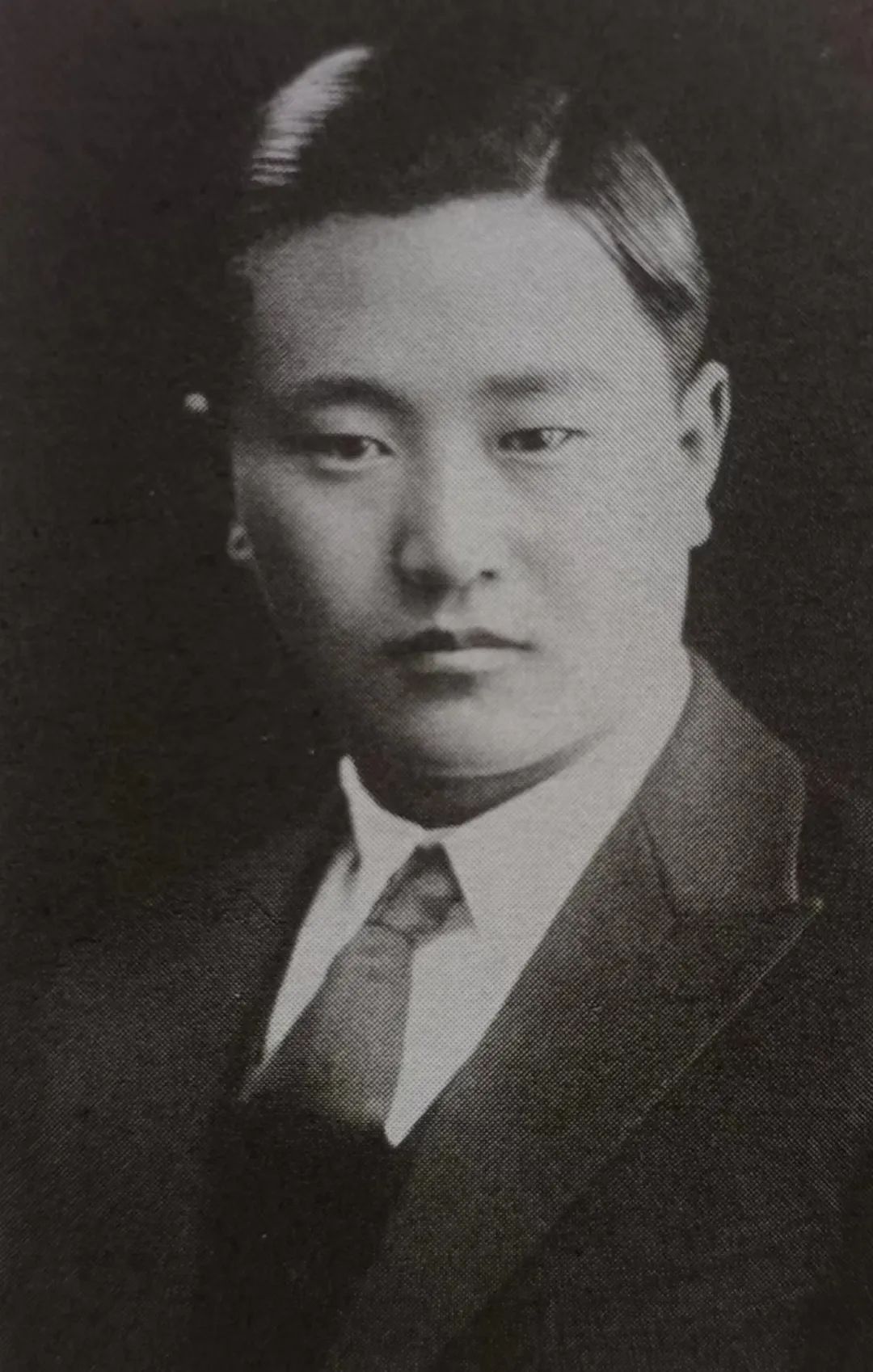
In November 1931, John Rabe began to work at the Nanjing branch of German Siemens. His job involved dealing with government officials and enterprises frequently, but he only had a rudimentary knowledge of Chinese and could not communicate with the Chinese. For the purpose of work, he hired Han Xianglin as his Chinese secretary and interpreter.
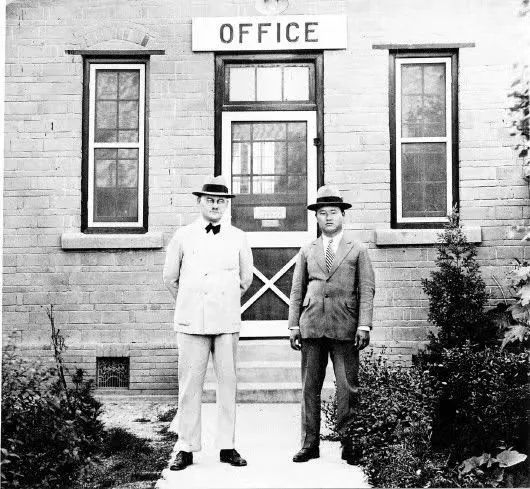
Rabe and Han Xianglin (right) at Siemens’ Nanjing office
Han Yunhui recalled that “As far as I know, my father was proficient in English, German and French. I heard my parents recall that Rabe needed a secretary who also knew foreign languages and could help him in daily life. My father met these conditions, and said that he would have a try. Both sides felt very satisfied.” Since then, Han Xianglin had been working with Rabe as his right-hand man during his time in China.
“It would be against our conscience if we go away!”
The sound of bombing by Japanese invaders was heard in Nanjing before the Japanese attacked Nanjing. Rabe had suggested that Han Xianglin leave with his family, but he refused. In his diary dated September 21, 1937, John Rabe wrote “I gave my assistant, Mr. Han (Xianglin), an advance on his salary, so that he could send his wife and two children to a safe place in Jinan. He said frankly: ‘I will be wherever you are.’”
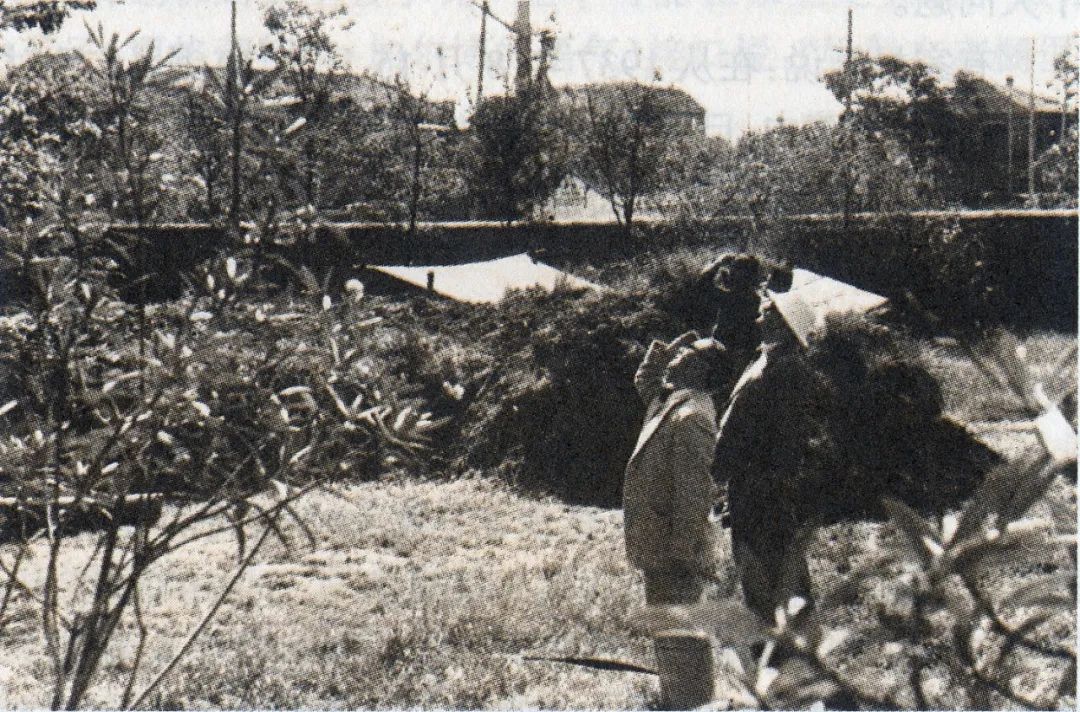
On October 26, 1937, Rabe and Han Xianglin (left) spotted seven Japanese bombers flying overhead using a new telescope with a magnification of 18x for the first time in a residential garden
Han Yunhui recalled, “When I was a child, I heard my parents say, ‘Actually, we can all leave, but come to think of it, it would be against our conscience if we go away!’ I was young at the time, and couldn’t figure out what this meant. When I have grown up, I understand why they didn’t leave Nanjing back then.”
“When I was a child, I occasionally heard my father say, ‘It’s brutal. The road is full of corpses, and it is even bumpy driving,’ said Han Yunhui.
He wore many hats during the Nanjing Massacre
During the Nanjing Massacre, the “Siemens Refugee Shelter” was set up in the courtyard of Xiaofanqiao No. 1 where John Rabe lived, and Han Xianglin served as the director. More than 600 refugees were protected here during the Nanjing Massacre.
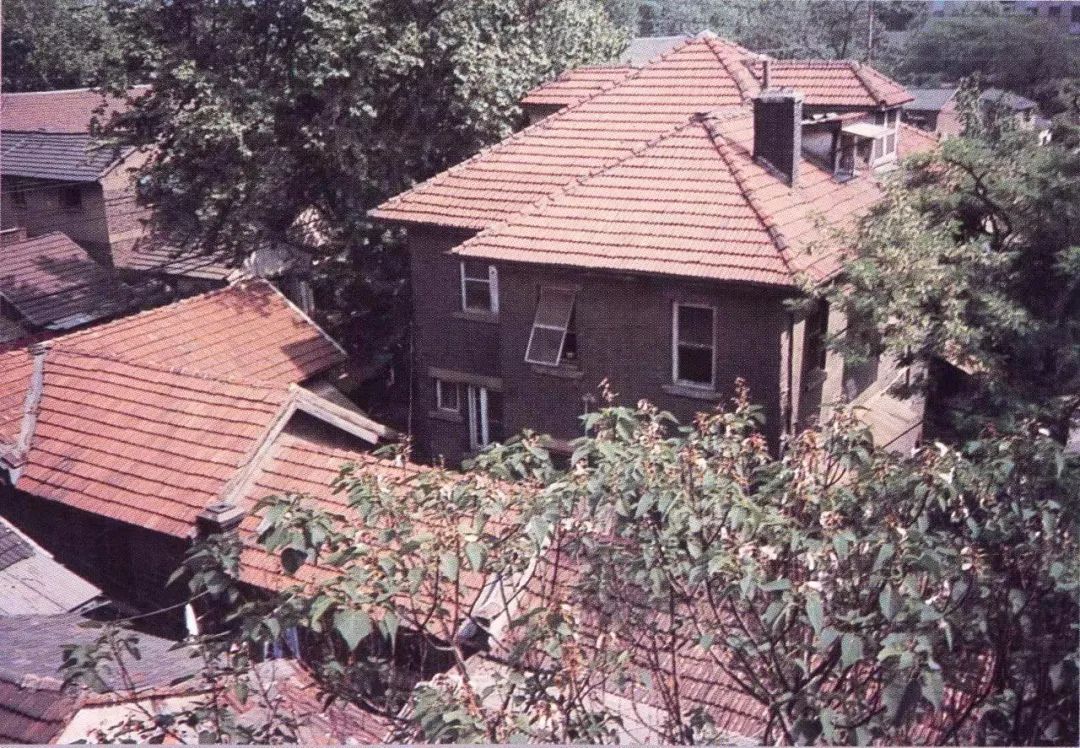
At the same time, Han Xianglin was also appointed as the director of the Food Committee of the International Safety Zone. According to historical records, on December 3, 1937, the Food Committee consisted of the following: director Han Xianglin, deputy director Hubert L. Thorne, and members of Sun Yaosan, Zhu Jing, Tsang chao-sung, Chao Lao-wu, Hsao, C.C. Meng, and T'ao Pao-tsin (Red Swastika Society). Only Thorne is a foreigner.
According to The Diaries of John Rabe, Han Xianglin often worked at the headquarters of the International Committee during the day. Sun Yaosan was the owner of Yihedong Brick and Tile Factory, a native of Shandong, and a friend of Han Xianglin. On November 23, 1937, he donated to Rabe two trucks, 100 cans of gasoline and 200 bags of flour through the agency of Han Xianglin. It was the first donation received by the International Committee.
The Food Committee fulfilled the functions of transporting and distributing food. Before the fall of Nanjing, it transported 10,000 dan (9,076 bags) of rice and 1,000 bags of flour to safety. For poor refugees at the refugee shelter, the Committee distributed rice or meals free of charge. For refugees who were slightly better-off, the Committee charged a small amount of cash. The Committee distributed 2,035 bags of rice from December 17 to 31, 1937, 2,721 bags in January 1938 and 1,935 bags in February. Under the leadership of Han Xianglin, the Food Committee performed effectively to ensure a minimum food supply for the refugees.
“Two bayonet holes in the iron gate of Xiaofanqiao No. 1 courtyard”
When Rabe left Nanjing for Germany in February 1938, he put his house at Xiaofanqiao No. 1 in the charge of Han Xianglin. Han Xianglin’s family lived there until 1946, during which time her daughter Han Yunhui and youngest son Han Keduo were born.
Still fresh on the mind of Han Yunhui are two bayonet holes in the iron gate of Xiaofanqiao No. 1 residence. “My father said the holes had been pierced by the Japanese. The Japanese soldiers kept knocking on the door, demanding to come in. When the domestic servant came in to report, one Japanese soldier flied into a temper and stabbed the gate twice with a bayonet. The iron gate still bore two bayonet holes when my family moved out of it.”
Han Yunhui recalled, “My parents said that one day a potentially Communist crypto member, who was being chased, fled to my house. My dad hid him. Later, the Japanese soldiers came to search, but to no avail.” She said, “My dad is kind-hearted. He kept saying that we should be upright, not to bully people, and never do anything against our conscience.”
After 1946, Han Xianglin and his family moved out of Xiaofanqiao No. 1 residence. “My father changed jobs several times, and we had to move house accordingly.” Han Xianglin once lived in the area inside the Zhonghua Gate with the family. “I studied at Hehuatang Primary School.” Han Yunhui introduced that her father began to work at Nanjing University in around 1956. He “was a general worker, working at the publishing department of Nanjing University printing factory most of the time. He worked as a typist there, who did fast typing. When German teachers were not available, my father went to give a German class sometimes.” Han Xianglin later retired at Nanjing University.
He was fond of taking pictures of his family, but rarely himself
On the wall of Han Yunhui’s home is a yellowed photo showing a little cute and stubborn girl with smiling eyes. Han Yunhui said that this was taken by her father when she was a child. “I wasn’t yet fully awake, but my father wanted to take pictures of me. I was angry with him, and only wore one pigtail.”
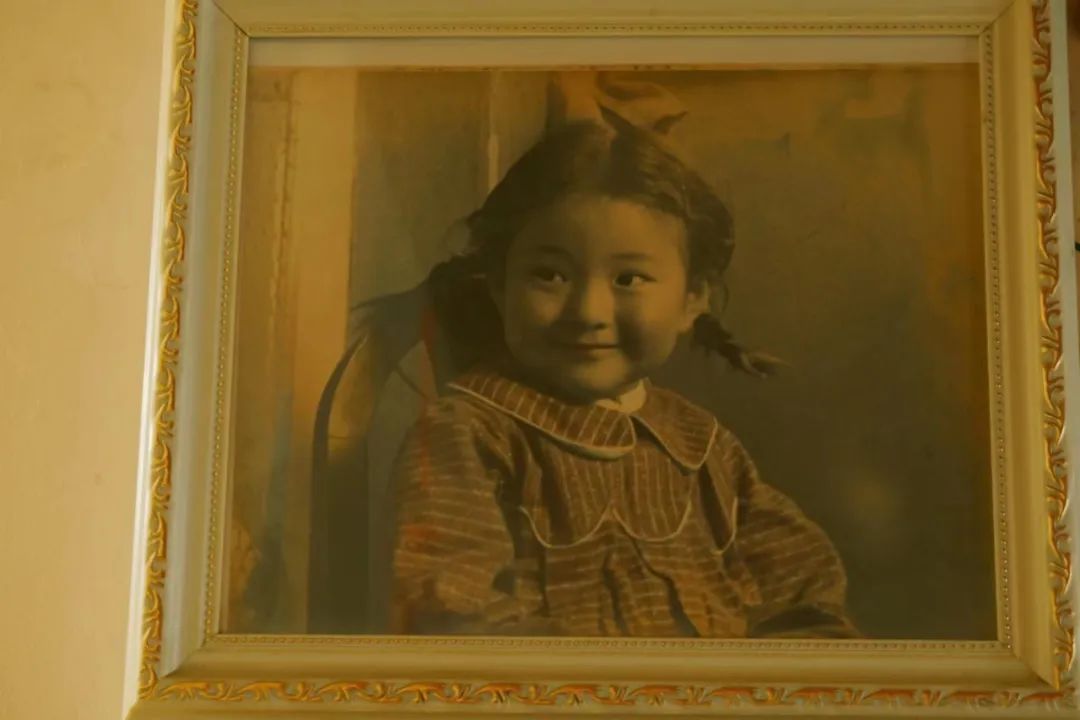
Golden dream
Han Yunhui recalled that her father was fond of photography in his early years, and were close with his family, often capturing beautiful moments with a camera. Lots of old photos are kept at Han Yunhui’s home, including her childhood photos, photos of her with her mother and brothers, but rarely with Han Xianglin, the head of the family. Han Yunhui said, “These pictures were taken by my father. He really loved photography, and had a great camera at that time. Nevertheless, there are little photos of him. My father was camera-shy. After many photographic works got lost during the special period, he was even more reluctant to have himself photographed.”
“In addition to photography, my father had many hobbies, including seal engraving. On every Dragon Boat Festival, he would make us beautiful egg carvings. He was fond of listening to and singing opera. When he lived at Xiaofanqiao No. 1 residence, he specially invited an opera troupe for a full-scale performance. There were many costumes he collected at home at that time.”
Han Yunhui recalled that her father picked up a different accent after having lived in Nanjing for many years, “He said Nanjing dialect perfectly.” With this, she burst into laughing.
In early 1985, Han Xianglin fell ill and was admitted to Nanjing Qinhuai Hospital. “It shows signs of jaundice, possibly caused by the digestive condition, but the cause was not located, and he passed away shortly afterwards.” According to Chen Qianyu, Han Yunhui’s sister-in-law, living in Nanjing, Han Xianglin died at Qinhuai Hospital on March 1 of that year, aged 79.
Two descendants, who are now health care workers, met in Shanghai years later
The 83-year-old Han Yunhui keeps media reports on her father Han Xianglin in recent years and a copy of the Pictorial Biography of John Rabe bearing the signature of John Rabe’s descendant.
She was invited to a screening of The Diaries of John Rabe in Shanghai and met Thomas Rabe, the grandson of John Rabe. As the descendants of Chinese and Westerner figures who remained in the Nanjing Safety Zone at the time, they later become medical workers. Thomas Rabe gave Han Yunhui a copy of the Pictorial Biography of John Rabe bearing his signature.
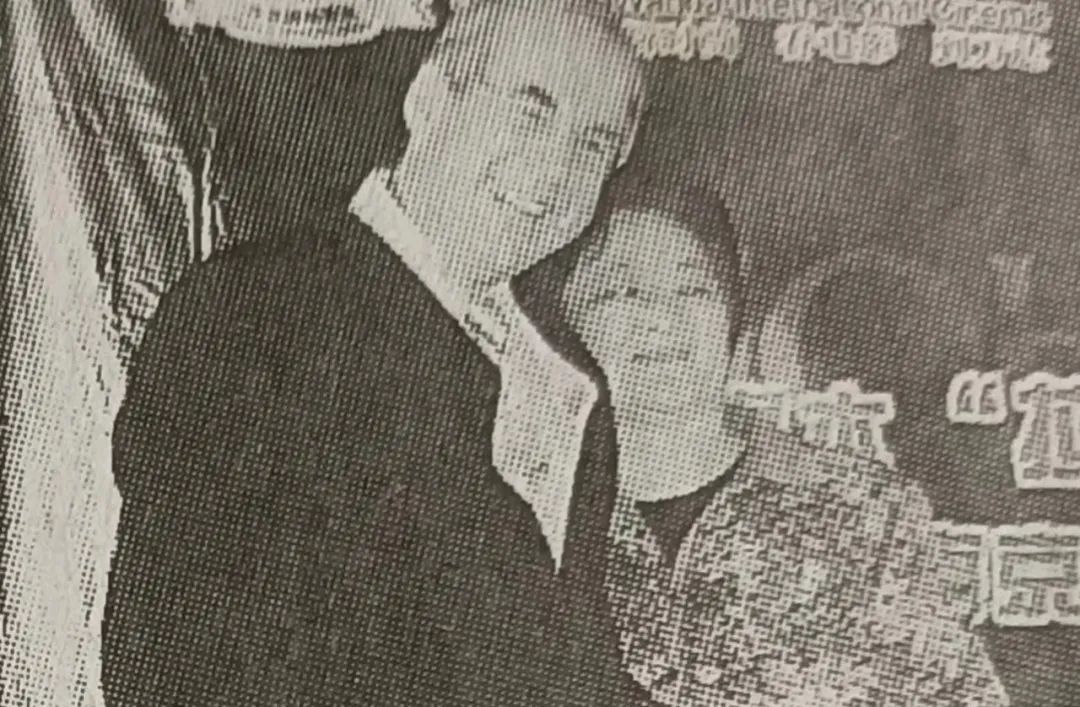
Han Xianglin had four children. The eldest son and second son were born before the Nanjing Massacre. One worked in Tibet for many years and the other studied and worked in Anhui, both of whom had passed away. Han Yunhui and Han Keduo were born when the couple worked and live at Xiaofanqiao No. 1 residence. Han Yunhui has settled in Shanghai and Han Keduo, who is more than one year junior to Han Yunhui, currently lives in Harbin. At every festival, the descendants will get together, and reminisce about the great deeds that their ancestors did. The family tradition of “being an upright and kind person” he left has always influenced everyone.

